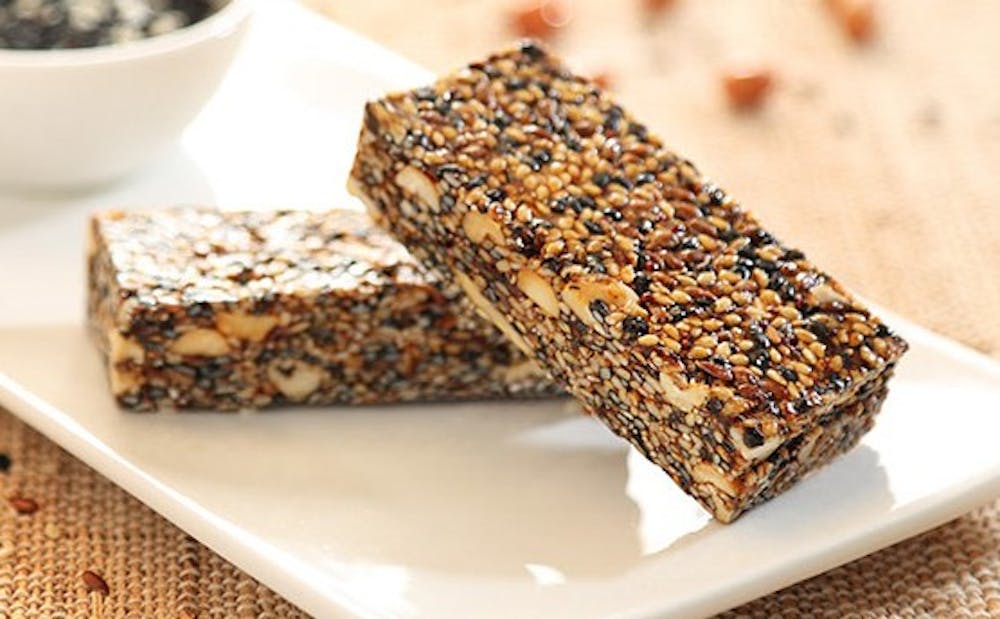A Duke medical student is working to improve nutrition and combat anemia among Indian women, and a new study indicates she has been successful.
Rajvi Mehta has been working since 2011 on creating the iron-rich supplement bar GudNesS with the help of Let's Be Well Red, a group she founded to tackle anemia in India. According to a 2015 report from Indian pathology lab SRL Diagnostics, about 59 percent of Indian women suffer from this condition, in which the body lacks enough iron to produce oxygen-transporting hemoglobin.
Metha got the inspiration to create GudNeSs in 2011, when she was a sophomore at Brown University and started to feel sick. Eventually, she was diagnosed with anemia.
“That was surprising to me because being born and raised in Mumbai, I [had] never heard of it, and I didn’t know why,” Metha said.
She then established LBWR to provide free blood tests and nutritional guidance as well as mass-produce the iron-fortified GudNeSs bars. The organization, which currently operates in three different locations and generates 100,000 bars each year, aims to supplement what Mehta said is the typical yet problematic Indian diet.
“Most people in India are vegetarian. Very few people would consume iron-rich meat such as red meat and fish on a regular basis,” Metha said. “The average Indian diet consists of 9.5 milligrams of iron, but on a daily basis you should be getting 14 to 15 milligrams of iron.”
Simply providing nutritional information and diet instructions does not solve the problem because people find it difficult to stick to the diet in the long term, Metha said. For this reason, her team developed the GudNeSs bar based on the Indian delicacy chikki to supply people’s iron needs. By handing out samples at Indian high schools, Metha and her team spread the GudNeSs bar in the country and gradually began large-scale production.
When she came to Duke for medical school, she collaborated with researchers to conduct a clinical trial on the bar's efficiency. And a recent study released earlier this month has confirmed that the bar successfully reduces anemia, and it does so with no reported side effects.
“I feel like this is an example that explains well why and in what ways Duke is a great place for research,” said Elizabeth Turner, assistant professor of biostatistics and global health. “We are able to draw on the strength of Duke’s different departments and form a good team to work together.”
The study was conducted in Mumbai and Navi Mumbai between March and August 2014 and involved 179 women of reproductive age in 10 different locations. The participants were randomly placed into the control group or the intervention group, with the latter group receiving GudNeSs bars for three months.
Blood tests after the three months showed a positive connection between consumption of the bars and reduced anemia prevalence. The study evaluated this by examining changes in levels of hemoglobin and hematocrit, or the volume of red blood cells in the blood. Having too few red blood cells is an indicator of the presence of anemia.
“It was possible to implement the research in a rigorous way, and the results themselves show that we have a sustainable and implementable solution to this very severe problem of anemia in women of different ages,” Turner said.
Turner added that the next step of the research would be to collaborate with the Global Health Institute Evidence Lab to conduct real-life programmatic evaluation and to make the bars accessible to all who need them. Winning a $50,000 grand prize from the Duke Start-Up Challenge has also helped Metha expand production, and she added that her team will partner with the Indian government.
“Right now, we are focusing on India because we are not even close from supplying enough for the needs in India,” Metha said. “But we do get orders from neighboring countries like Singapore and Nepal.”
Get The Chronicle straight to your inbox
Sign up for our weekly newsletter. Cancel at any time.
As for her medical studies, Mehta plans to eventually become an ophthalmologist and will transition her GudNeSs leadership role to someone else.
“I am thrilled that my colleagues and I were able to develop a solution that has proven to be effective among a high-risk population," she said. "Making an impact in global health has long been a goal of mine.”

